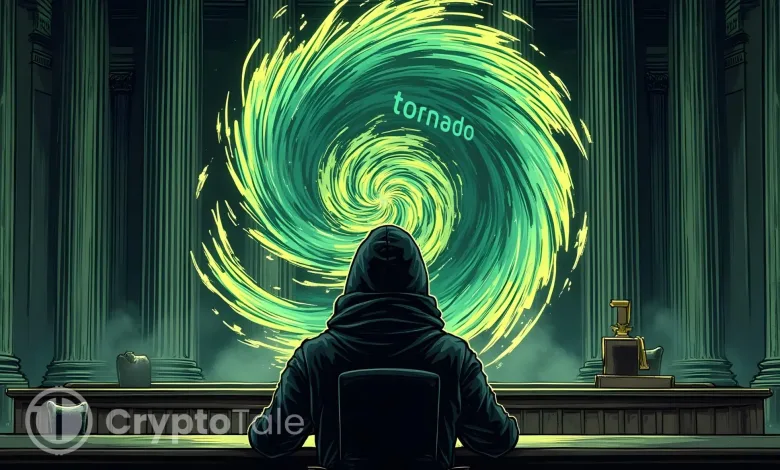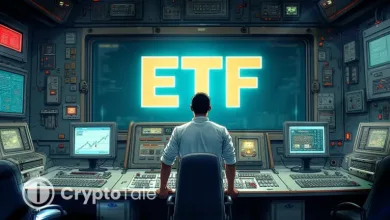Tornado Cash Trial Drama: Mistrial Looms Amid Shaky Testimony

- Defense seeks mistrial in Roman Storm case over disputed witness blockchain testimony.
- Trial outcome could reshape legal standards for open-source crypto project developers.
- Concerns rise over Storm’s role in the money laundering act, as he did not modify the protocol.
The trial of Tornado Cash co-founder Roman Storm has taken a sharp turn. His legal team is challenging the credibility of a government witness. The defense argues that false or misleading testimony may warrant a mistrial. Reportedly, Storm faces multiple federal charges, including conspiracy and money laundering.
Judge Katherine Failla denied a defense motion on Sunday related to expert witness testimony. The defense attempted to block statements from AnChain.AI investigator Philip Werlau, who would testify that Storm could have implemented tools to reduce criminal use of Tornado Cash. Failla ruled that this testimony is admissible if it’s technically feasible.
Defense Challenges Key Government Witness
A key turning point came with testimony from scam victim Hanfeng Ling. Ling claimed her stolen crypto was routed through Tornado Cash. However, Storm’s attorneys said they found no evidence supporting her claim, and the defense believed this misidentification may have misled jurors.
Ling said a “crypto recovery service” traced her funds to the Tornado Cash protocol. But blockchain experts dispute the accuracy of that analysis. Taylor Monahan, an Ethereum security researcher, stated the funds never went through Tornado Cash. Monahan posted a detailed analysis refuting the connection on social media.
Storm’s lawyer, David Patton, cross-examined Ling regarding the chain of custody and argued that there was no concrete evidence to show the involvement of Tornado Cash. The defense is considering a formal mistrial request over the disputed testimony.
Developer Liability and Open-Source Accountability
This case raises questions beyond Storm’s conduct and is viewed as a test for open-source software liability. Prosecutors argue Storm had control over Tornado Cash’s design and deployment and claim he could have restricted its use, thus preventing unauthorized access.
Werlau’s testimony focuses on whether Storm knowingly allowed Tornado Cash’s misuse. He argued that Storm had tools to limit illicit transactions using smart contract features. Failla allowed this argument despite the defense noting that such features are not industry standards. She said feasibility and Storm’s awareness are enough to permit testimony.
Storm’s defense insisted that Tornado Cash is decentralized and not an active money service business and argued that Storm cannot be held liable for third-party misuse. The defense also questioned whether intent can be proven based on code alone.
Related: Tornado Cash’s Roman Storm to Face DOJ Trial in New York
Implications for Crypto Regulation and Privacy Projects
This trial may set a precedent for regulating blockchain privacy protocols. It could influence how developers approach building decentralized tools. A conviction could deter privacy tool development and push contributors toward anonymous or offshore roles.
Legal observers note parallels with past crypto convictions. Failla referenced cases involving Sam Bankman-Fried, Karl Greenwood, and Nathaniel Chastain. Each was found guilty in cases involving control over centralized systems. Tornado Cash is different, built as open-source software operating autonomously on the blockchain.
Earlier this year, Tornado Cash developer Alexey Pertsev faced legal challenges in the Netherlands and was later released under electronic monitoring, but this might not be the case for Storm, as there might be differences in definitions and laws.
Storm has already pleaded not guilty to all the charges. In case he is found guilty, he would serve a prison term of 45 years. Before the week closes, it is presumed that the prosecution will rest. The defense will then outline its defense to the jury.
This trial will change the outlook of the court concerning intent in decentralized development. It also questions the regulatory jurisdiction of the protocols of the blockchain. The lawsuit may also influence the future development of the crypto-privacy technology, as legal arguments have been brought forward.




